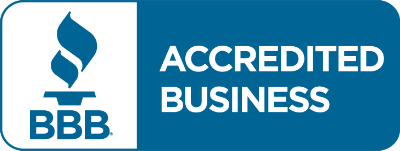How Safe is Home Detox?
It should be clearly understood that home detox is never recommended without medical supervision. Withdrawal symptoms can be highly unpredictable, and even life threatening. Having a detox team there with you to monitor your progress and provide medical support is essential for a successful and safe detox outcome.
A home detox Pacific Palisades will be conducted by trained detox nurses under the supervision of a physician. This oversight ensures that your vital signs and symptoms are closely observed and responded to. Having the medical support also increases your chances of actually completing the detox process and entering a treatment program.
What You Can Expect During Home Detox
During detox, the toxins from drugs or alcohol are gradually released from the body. As the detox proceeds, withdrawal symptoms will start to surface. Withdrawal symptoms range from mild to severe based on the substance involved and the stage of addiction.
The home detox is very closely monitored. You will have a detox nurse assigned to you who provides the medical support needed to manage any discomfort. The detox care team keeps a close eye on your vital signs, relaying the updates to the doctor in charge.
The withdrawal timeline typically features three distinct stages:
- Stage 1. During the first 24 hours you begin to experience symptoms. This indicates that the brain is noticing the absence of the substance and attempting to normalize. Early symptoms are mostly mild, and may include nausea, sweating, trembling, irritability, and insomnia.
- Stage 2. During the second stage of detox your withdrawal symptoms reach peak intensity. This stage of detox may take two to four days, and often features psychological symptoms as well as physical discomfort.
- Stage 3. During the final phase of detox, the symptoms begin to subside. There may be symptoms that persist, even for weeks, such as depression, insomnia, or anxiety.
Increase Comfort During At-Home Detox
As you prepare for home detox Pacific Palisades, it is a good idea to take steps to make the process as comfortable as possible. Here are some helpful comfort tips in addition to the support you will receive from the private detox nurse:
- Add some concierge services. Your detox team can arrange for you to receive some additional services, such as massage, IV vitamin therapy, or yoga.
- Increase electrolytes. To reduce the risk of dehydration during detox, make sure to stock your kitchen with some electrolyte beverages like Gatorade.
- Take short walks. Gentle movement can help move toxins through your system, so try to add some short walks during the detox process.
What Are the Next Steps After Completing Detox at Home
In home detox services include case management. The case manager helps you plan your next steps in recovery, such as which type of rehab program would be best. The case manager coordinates these plans to help facilitate the transition from detox to treatment.
There are numerous options for addiction treatment programs, and is available in either outpatient or residential formats. Outpatient rehabs allow you to reside at home while you receive treatment. Residential rehabs provide housing at the treatment facility for an extended period.
Both residential and outpatient rehabs are designed to help you change dysfunctional thought and behavior patterns and break the addiction cycle. Treatment elements include:
- Psychotherapy. Evidence-based therapies like CBT and DBT help you develop healthier behaviors and important coping skills in recovery.
- Group therapy sessions. Group therapy has been found to be an essential source of peer support during treatment.
- Medication. Medication may be appropriate for some clients.
- Addiction education. You will learn how drugs and alcohol impact the brain and cause addiction. Relapse prevention planning is also included in these classes.
- Stress reduction techniques. Holistic relaxation techniques like mindfulness, deep breathing, guided meditation, and yoga helps to manage stress in recovery.
- Family therapy. Family group therapy helps family members learn how to set healthy boundaries and avoid co-dependency, among other useful tools.
- Recreational therapy. Residential treatment programs provide recreational diversions to help balance the work of recovery with outdoor fitness activities.



